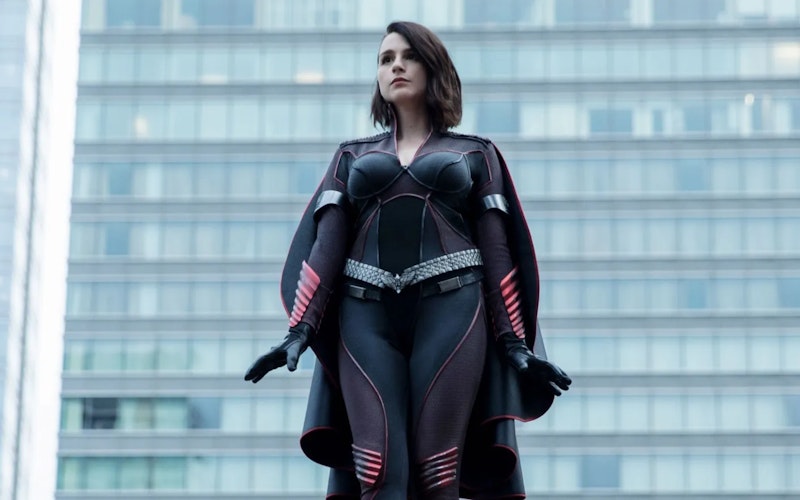
TV
Stormfront Brewing
“Why didn’t you ever tell us?” – Mother’s Milk
“What difference would it make?” – Frenchie
“After all these years, man? We would have let you off the hook.” – Mother’s Milk
“What makes you think I want to be let off the hook, huh?” – Frenchie
The following conversation takes place between members of the vigilante team known as the Boys, whose adventures are chronicled in the Prime Video series of the same name. Frenchie (Tomer Capon) has just disclosed to Mother’s Milk (Laz Alonso) a decision he made years ago that he believes eventually led to the death of some children. It’s an attempt to take responsibility and express remorse.
This distinguishes the Boys from their adversaries: the Seven. A corrupt team of superheroes, the Seven have the backing of the powerful Vought corporation, the support of the United States government, and the cult-like adoration of the public. Claiming to fight superpowered terrorists, the Seven inflict pain and suffering without facing any accountability, while the Boys put their special skills and creativity to use to try to hold the Seven accountable for their actions. At the start of Season 2, the Boys find themselves on the run, with their leader missing in action.
Broadly speaking, my scholarship interests include exploring the intersection between how we develop understandings of concepts like law, authority, harm, and justice, and the ways these concepts are depicted in superhero media. What might the ways people actually treat each other in The Boys reveal about how we should treat each other, particularly according to scripture?
Although there are many examples of superheroes seemingly getting away with whatever they want through most of Season 2, one particularly notable instance involves Stormfront (Aya Cash), the newest member of the Seven. While chasing a pair of superpowered siblings who have been helping the Boys, Stormfront blasts both siblings through the wall of an apartment. The occupants of the apartment—a father and his two children—try to take cover; when the father attempts to shield his kids, Stormfront kills the father. As she attempts to leave through the hole she made in the wall to continue her pursuit, she turns around—apparently bothered by the kids’ screaming—and murders the children.
Notice Stormfront’s facial expression just before she commits the act. It is a look of disgust that—as more of her backstory gets revealed—may be rooted in her racism. As she continues pursuing the siblings, the camera shifts to a person being blasted through a window, followed by multiple apartments being blown up. She eventually catches up to them; while one sibling is temporarily down, she kills the other, but not before giving a command—“Open your eyes. . . . I like to see the light go out”—and spewing a racial epithet. Despite what we’ve seen, the Vought corporation blames the death toll from the incident—59 people!—on superterrorists, claiming the count would have been higher if not for the heroic actions of Stormfront.
What might the ways people actually treat each other in The Boys reveal about how we should treat each other, particularly according to scripture?
Stormfront’s actions exemplify what it means to simultaneously possess unquestionable authority alongside no accountability. Just as brazen as the act itself is the fact that she felt that this was something that she could do and get away with. If you have the powers to manipulate electricity, the adoration of a nation, and the backing of an international corporation, why would you ask for permission to do anything? And what type of society does this reflect or help create? I think these questions relate to an ironic feature of The Boys’s portrayal of the authority-accountability relationship, namely that—as indicated in the opening quote—it is someone like Frenchie, who is not part of the most powerful or elite in society, who feels the most remorse for not being held accountable for past actions.
To paraphrase a superhero of another franchise, with great power (I would also add authority) comes great responsibility (I would also add accountability). A biblical worldview offers a model for the expectations that should be held for those in authority. Passages in both the Old and New Testaments suggest that having God-infused authority comes with a great responsibility—not just with respect to serving God, but serving others as well.
In The Boys, the title team aims to overcorrect for the distortion in the authority-accountability relationship by bringing down the Seven. During Vought’s public-relations speech following Stormfront’s actions, we see the reactions of the Boys as they watch the lies on television. Given the wide gulf between the harm superheroes are able to perpetuate on the world and the probability of them being held accountable, how can the Boys go about setting things right?
Here, again, is a question consistently answered throughout scripture. From the Pentateuch to Proverbs, from Matthew to Mark, the Bible warns against the dangers of seeking revenge and points to the power of reconciliation. Although this concept does not preclude us from reasonably disagreeing on the specific form such reconciliation may take, that some form of reconciliation should be the aim is evident.
Despite not having to worry about superpowered individuals causing harm throughout the world with impunity, we can still find applicable lessons in The Boys. The 230 (and counting) protests that have taken place around the world since 2017 suggest that we are experiencing similar distortions in a variety of societal domains. Although those who follow Christ believe that the world will not be “set right” until Christ returns, a biblical worldview provides a roadmap towards improving society within our means until that happens. The latest season of The Boys, with its extreme take on the relationship between superheroes and the society they inhabit, may serve as a useful reminder of what can go wrong when such a worldview is discarded.
Topics: TV